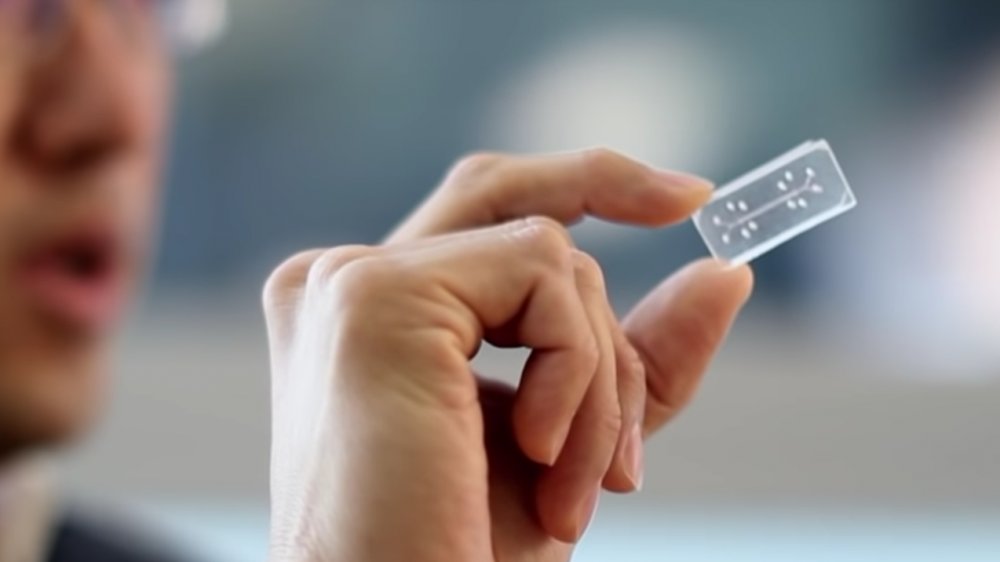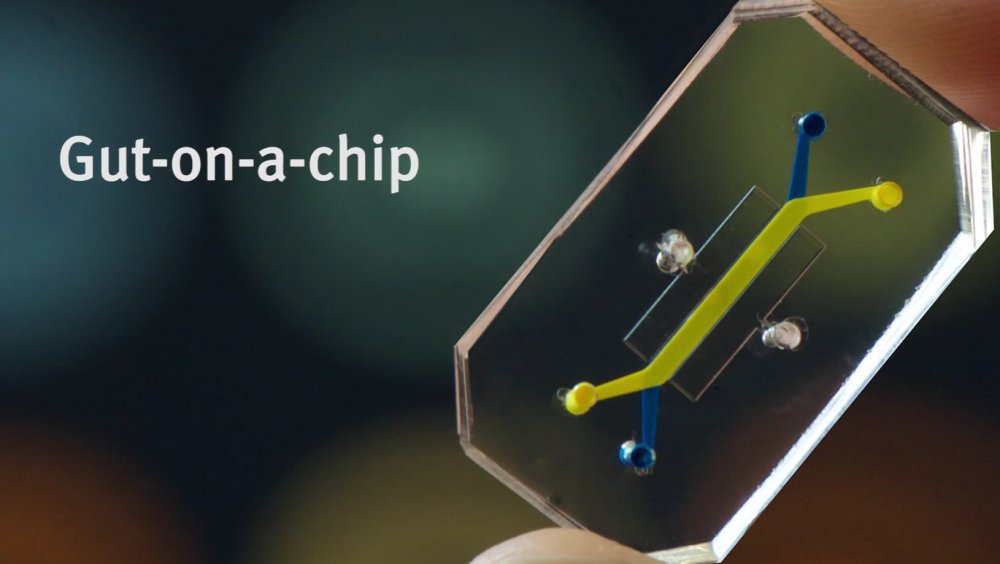The Untold Truth Of The Mini-Human-On-A-Chip
To make an omelet you have to break a few eggs, but to make a pharmaceutical you have to break the bank. According to the Wyss Institute at Harvard, the price tag for testing a single compound can be upwards of $2 billion. The process may take years and kill countless animals in the process. Even worse, many of those animal deaths are in vain. Rodents often serve as guinea pigs in drug testing, but as the Times of Israel points out, an estimated 60 to 90 percent of drugs that effectively treat rodents become duds when used on humans.
Experimenting on human lab rats that aren't really humans or rats would be ideal. But for a long time such a scenario sounded like the kind of hallucination you might have as a side effect of taking pharmaceuticals. But a series of scientific breakthroughs have turned that dream into a pharmaceutical omelet. A team of eggheads at Harvard and Tel Aviv University have managed to reproduce a human via tiny chips.
The bionic mini-man
This potentially world-changing breakthrough was a decade in the making. The Times of Israel reports that Harvard first managed to mimic the functions of human organs on chips back in 2010. Back then, they extracted cells, from a heart, liver, kidney, or even brain, and placed them in a plastic cartridge called a chip — not to be confused with the microchips associated with computers. Fast-forward to 2020, and scientists have determined that the chips can be connected like a high-tech Frankenstein to form a so-called "mini-Human-on-a-Chip." In addition to the organs already mentioned, researchers reproduced bone marrow, lung, skin, and intestine. The various anatomical parts were linked through a robotic liquid to simulate blood flow.
During drug trials, the organs of this artificial person appear to respond to the same way as those of full-fledged humans. One day, these chip people may replace rodents as the go-to guinea pigs of drug makers. Of course, that may raise some alarming questions. If you piece together a series of living organ parts, including a brain, does that count as a living machine or an actual person of sorts? What would be the ethical implications of making a mini-nervous-system-on-a-chip to test painkillers? Would it be cruel to inflict pain on the mini-person? If you kill a chip person out of frustration, could that count as murder, manslaughter, or some as yet undefined crime?

